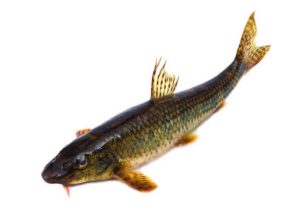A French study examining wild gudgeon fish that live directly downstream from a pharmaceutical drug manufacturing plant found that up to 80 percent of them exhibited both male and female traits in their sex organs. Such sex abnormalities indicate endocrine disruption that can foreshadow larger effects on fish populations because of reductions in breeding abilities. Upstream of the plant, only 5 percent of such intersex fish were detected.
Excreted pharmaceuticals can enter the environment from sewage treatment plants or the flushing of unwanted or old drugs down the toilet. They also can directly enter waterways via discharge into rivers and streams by drug manufacturing plants. The study is the first to link discharge from a drug plant, rather than a sewage plant, with physical and chemical changes in fish.
 The inquiry was initiated after fishermen along the Dore River, in France, noticed swollen bellies and abnormal innards in the wild gudgeon fish. Study results were published in the journal Environmental International. More research is needed to identify the types and levels of specific drugs in the water at each site.
The inquiry was initiated after fishermen along the Dore River, in France, noticed swollen bellies and abnormal innards in the wild gudgeon fish. Study results were published in the journal Environmental International. More research is needed to identify the types and levels of specific drugs in the water at each site.
Source: EnvironmentalHealthNews.com


